Peugeot 308 vs Toyota Yaris - Differences and prices compared
Compare performance (195 HP vs 280 HP), boot space and price (29200 £ vs 21900 £ ) at a glance. Find out which car is the better choice for you – Peugeot 308 or Toyota Yaris?
Costs and Efficiency:
Looking at overall running costs, both models reveal some interesting differences in everyday economy.
Toyota Yaris has a clearly perceptible advantage in terms of price – it starts at 21900 £ , while the Peugeot 308 costs 29200 £ . That’s a price difference of around 7380 £.
Fuel consumption also shows a difference: Peugeot 308 manages with 2.30 L and is therefore convincingly more efficient than the Toyota Yaris with 3.80 L. The difference is about 1.50 L per 100 km.
Engine and Performance:
Under the bonnet, it becomes clear which model is tuned for sportiness and which one takes the lead when you hit the accelerator.
When it comes to engine power, the Toyota Yaris has a noticeable edge – offering 280 HP compared to 195 HP. That’s roughly 85 HP more horsepower.
In acceleration from 0 to 100 km/h, the Toyota Yaris is noticeable quicker – completing the sprint in 5.50 s, while the Peugeot 308 takes 7.60 s. That’s about 2.10 s faster.
There’s also a difference in torque: Toyota Yaris pulls distinct stronger with 390 Nm compared to 300 Nm. That’s about 90 Nm difference.
Space and Everyday Use:
Cabin size, boot volume and payload all play a role in everyday practicality. Here, comfort and flexibility make the difference.
Both vehicles offer seating for 5 people.
In curb weight, Toyota Yaris is distinct lighter – 1090 kg compared to 1453 kg. The difference is around 363 kg.
In terms of boot space, the Peugeot 308 offers clearly perceptible more room – 412 L compared to 286 L. That’s a difference of about 126 L.
When it comes to payload, Toyota Yaris slight takes the win – 525 kg compared to 503 kg. That’s a difference of about 22 kg.
Who wins the race in the data check?
The Peugeot 308 comes out modestly ahead in the objective data comparison.
This result only shows which model scores more points on paper – not which of the two cars feels right for you.
Costs and Consumption
View detailed analysis
Engine and Performance
View detailed analysis
Dimensions and Body
View detailed analysis
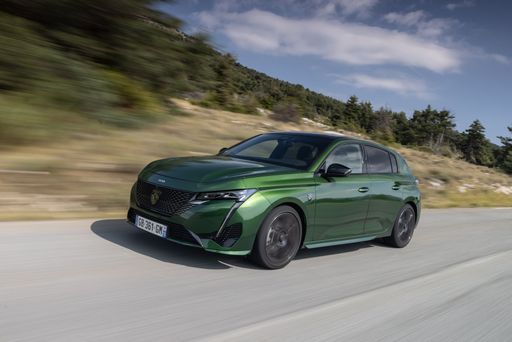
Peugeot 308
Peugeot 308
The Peugeot 308 brings a sleek, feline profile and an unexpectedly upscale cabin, with clever packaging and materials that feel a touch more premium than you might expect. It’s composed on the road, easy to live with for daily life, and a smart choice if you want a stylish hatch that still behaves when the road gets interesting.
details
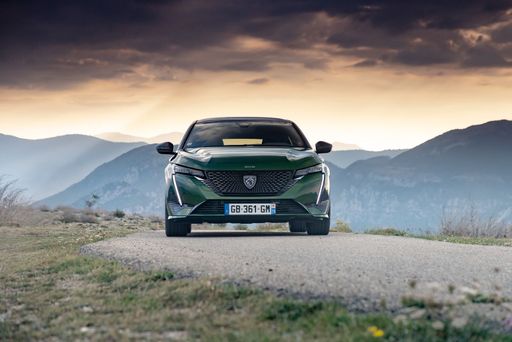
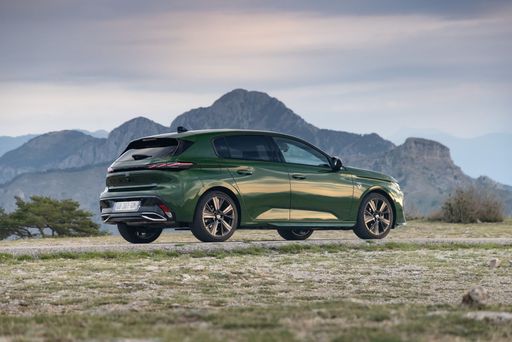
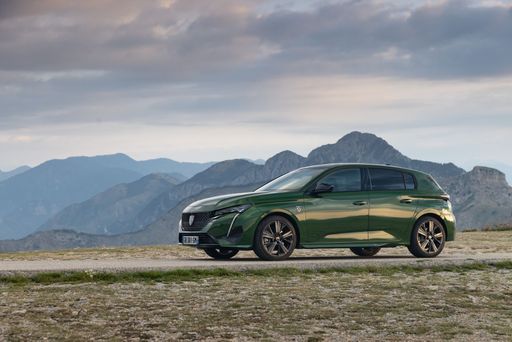
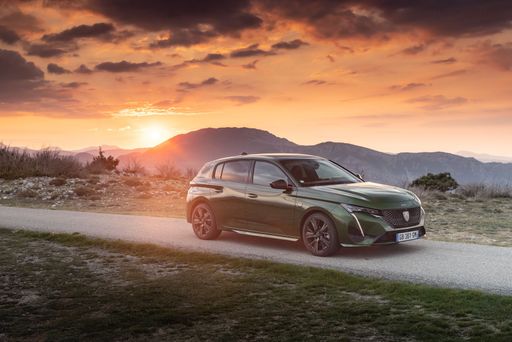
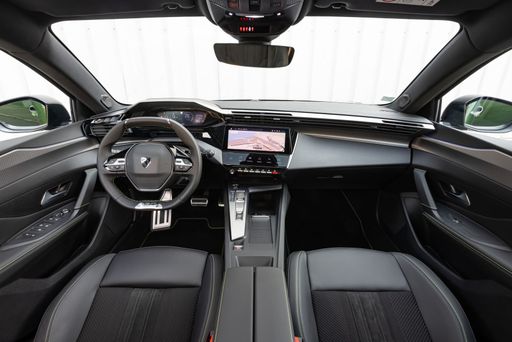
Toyota Yaris
The Toyota Yaris is a sprightly city hatch that packs clever packaging, surprising comfort and fuel-sipping manners into a neat, easy-to-park package. It rewards sensible buyers with low running costs, friendly ergonomics and a forgiving drive, delivered with Japanese reliability and just enough personality to make errands feel a little less ordinary.
details

Costs and Consumption |
|
|---|---|
|
Price
29200 - 42600 £
|
Price
21900 - 40800 £
|
|
Consumption L/100km
2.3 - 5.1 L
|
Consumption L/100km
3.8 - 8.7 L
|
|
Consumption kWh/100km
15.60 kWh
|
Consumption kWh/100km
-
|
|
Electric Range
78 - 450 km
|
Electric Range
-
|
|
Battery Capacity
0.40 kWh
|
Battery Capacity
-
|
|
co2
0 - 133 g/km
|
co2
87 - 197 g/km
|
|
Fuel tank capacity
42 - 52 L
|
Fuel tank capacity
-
|
Dimensions and Body |
|
|---|---|
|
Body Type
Hatchback
|
Body Type
Hatchback
|
|
Seats
5
|
Seats
4 - 5
|
|
Doors
5
|
Doors
-
|
|
Curb weight
1453 - 1749 kg
|
Curb weight
1090 - 1356 kg
|
|
Trunk capacity
314 - 412 L
|
Trunk capacity
141 - 286 L
|
|
Length
4367 mm
|
Length
-
|
|
Width
1852 mm
|
Width
1745 - 1805 mm
|
|
Height
1438 mm
|
Height
-
|
|
Max trunk capacity
1258 - 1323 L
|
Max trunk capacity
-
|
|
Payload
430 - 503 kg
|
Payload
289 - 525 kg
|
Engine and Performance |
|
|---|---|
|
Engine Type
Petrol MHEV, Diesel, Plugin Hybrid, Electric
|
Engine Type
Full Hybrid, Petrol
|
|
Transmission
Automatic
|
Transmission
Automatic, Manuel
|
|
Transmission Detail
Dual-Clutch Automatic, Automatic Gearbox, Reduction Gearbox
|
Transmission Detail
CVT, Manual Gearbox
|
|
Drive Type
Front-Wheel Drive
|
Drive Type
Front-Wheel Drive, All-Wheel Drive
|
|
Power HP
131 - 195 HP
|
Power HP
116 - 280 HP
|
|
Acceleration 0-100km/h
7.6 - 10.6 s
|
Acceleration 0-100km/h
5.5 - 9.7 s
|
|
Max Speed
170 - 225 km/h
|
Max Speed
-
|
|
Torque
230 - 300 Nm
|
Torque
390 Nm
|
|
Number of Cylinders
3 - 4
|
Number of Cylinders
3
|
|
Power kW
96 - 144 kW
|
Power kW
85 - 206 kW
|
|
Engine capacity
1199 - 1598 cm3
|
Engine capacity
1490 - 1618 cm3
|
General |
|
|---|---|
|
Model Year
2025 - 2026
|
Model Year
2026
|
|
CO2 Efficiency Class
C, D, B, A
|
CO2 Efficiency Class
B, G
|
|
Brand
Peugeot
|
Brand
Toyota
|
Is the Peugeot 308 offered with different drivetrains?
Available configurations include Front-Wheel Drive.
